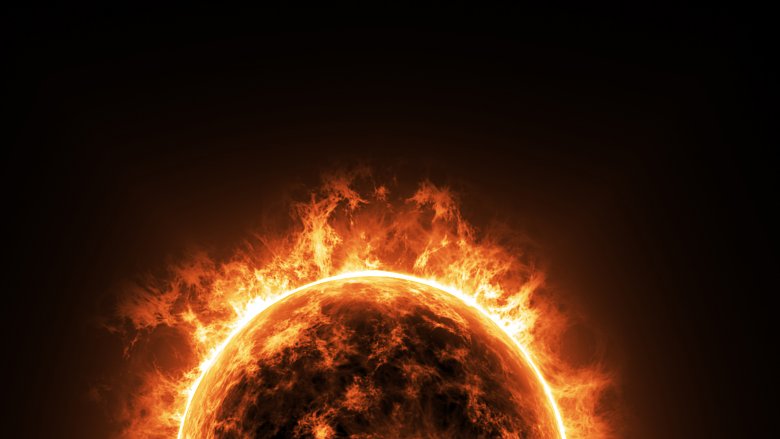When Will The Sun Die?
The sun is the yeast which allows the dough of life to arise, without which humanity would never have bred. It comprises over 99.8 percent of all mass in our solar system, which formed around it about 4.6 billion years ago.
Life as the sun is no small matter. According to the Astrophysical Journal, its existence is the result of a massive hydrogen fusion reaction, which comprises around 75 percent of its mass, being fused into helium, which makes up another 24 percent of its mass. That remaining one-ish percent is a combination of elements that are heavier than hydrogen and helium. These include oxygen, carbon, iron, neon and a couple others in increasingly small increments. However, even those fractional percentages comprise gargantuan quantities of matter. As explained by NASA solar scientist C. Alex Young, if the big burning ball were hollow, we'd be able to fit about one million Earths inside it.
While Encyclopaedia Brittanica explains that many ancient civilizations worshipped it as a god, the sun is not actually immortal. It's a little more than halfway through the most stable part of its lifespan, which means it has about 3.5 billion years of relative stability left, and about five billion years total.
So, while the sun has still got five billion years, per Phys.org, we don't have to worry about being around for its last dance. As its stable main sequence continues, it will start to get hotter, altering life as we know it and eventually growing hot enough to boil our oceans and return life to the stardust from whence it came. At some point, for any form of Earthly life to continue, it will have to leave the solar system in search of greener planetary pastures.
According to Universe Today, when the sun eventually runs out of hydrogen to burn, our once-benevolent yellow dwarf star will then continue its metamorphosis into a red giant, growing in size to eventually engulf our Mercury, Venus, Earth and possibly Mars. By this stage, the sun will be an Earth-sized white dwarf, reminiscing about its glory days of supporting a once-vibrant planet.
